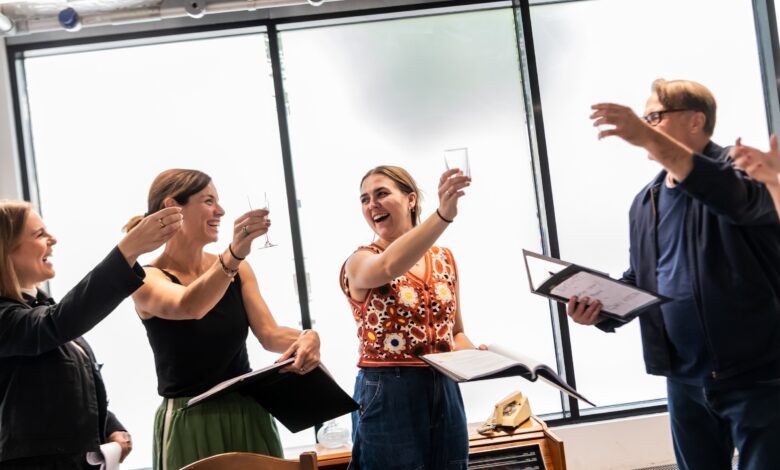
Sarah Shelton, Gary Webster and Anna Acton chat about Blessings.
This autumn, Riverside Studios will host the world premiere of Blessings, a darkly funny and moving family drama set in the late 1960s. Written and directed by Sarah Shelton, the play explores faith, family dysfunction, and the secrets we keep hidden to hold everything together. The cast includes acclaimed actors Gary Webster and Anna Acton, with an ensemble featuring Emily Lane, Hannah Traylen, Milly Roberts, and rising newcomer Freddie Webster.
Ahead of rehearsals, we sat down with Gary, Sarah, and Anna to talk about the play, its themes, and the excitement of bringing it to life on stage.
What can you tell us about the play itself?
GW: The play is set in 1969 and follows the Deacon family through the ups and downs, the secrets and lies of everyday life. What I love is that although it’s rooted in that period, it feels very current. The challenges that the family faced in 1969 are the same challenges families face today. It’s funny, witty, poignant, and yes, it’s also a night of jeopardy.
SS: I began thinking about this play nearly 20 years ago, when I was script-editing Family Affairs. I kept reflecting on my own youth and wondering: has anything really changed? Families evolve, society changes, but do those basic human struggles alter? Setting the play in 1969 allows us to hold up a mirror: we see free love, women demanding equal pay, the Moon landing, Concorde’s first flight. It was a period of huge upheaval, but the questions families ask themselves are timeless.
What was it about this particular role that attracted you?
GW: It’s always about the role. If a part has meat on the bones and challenges me, then I’m interested. Frank, the father of the family, is a decent man, a loving husband and father, but unfulfilled. He and Dorie had dreams and aspirations that never quite materialised, and he carries secrets from the past. I’m usually outspoken in real life, so playing someone who holds things close to his chest is a fascinating challenge.
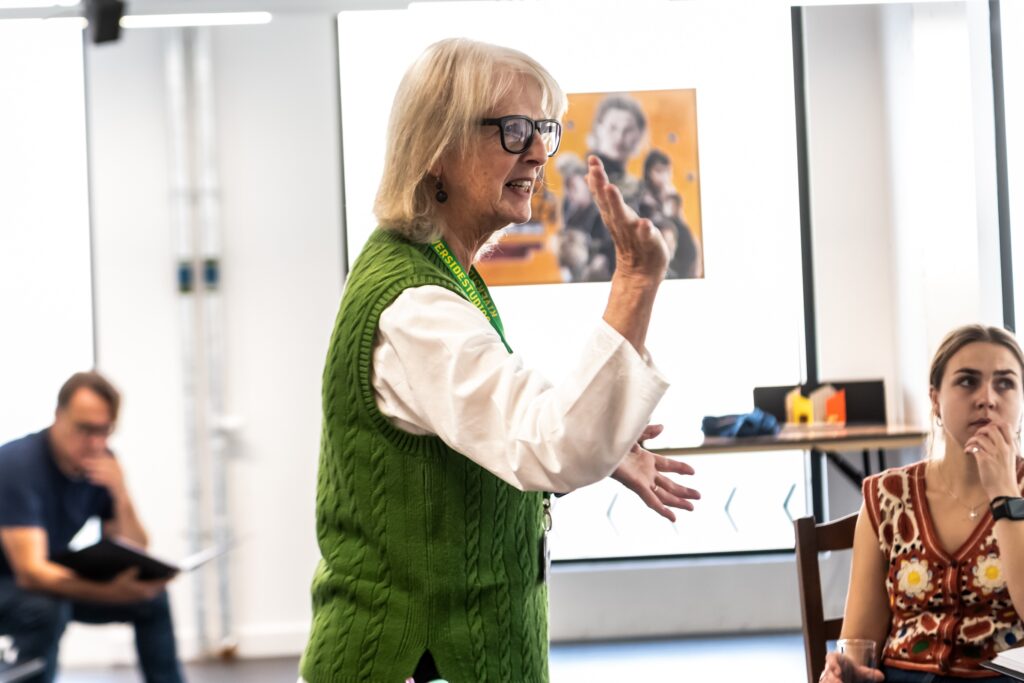
AA: Dorie is a really strong matriarch, the heart of this bustling household. She’s a devout Catholic, raising four children and trying to instil the same values she grew up with. That inevitably creates tension across generations. She has strong, very different relationships with each of her children, and her marriage to Frank is long-standing but complicated. She’s layered, with a lot simmering beneath the surface. There are revelations I can’t spoil, but she’s a gift of a character: strong, flawed, and deeply human.
Secrets seem to play a big part in this story. Without spoilers, how much of the drama hinges on what isn’t being said?
AA: The play is like a pressure cooker. The audience can feel the tension – waiting for the lid to blow. There are two big revelations, one early and one later, but so much of the drama comes from what’s unsaid: the looks, the pauses, the simmering resentment or love. Audiences will need to pay attention, because once everything is revealed, you’ll look back and realise why certain moments meant what they did.
GW: Exactly. Frank is a man who keeps his cards close. He’s doing his best, but sometimes that’s not enough. And that struggle, of living with secrets and disappointments, resonates with so many people.
Sarah, you’ve mentioned the Catholic backdrop. How important is that to the play?
SS: It’s central in one sense, but it could just as easily be another faith or moral framework. I grew up in a Catholic family, so it made sense to draw on that experience. But what matters is the clash between the old codes and the younger generation pushing against them. In 1969, young people were questioning authority: the Church, their parents, society itself. That rebellion is as relevant today as it was then.
The play had an earlier outing at Riverside’s Bitesize Festival. How did that shape what we’ll see now?
SS: The Bitesize Festival gave me a chance to test the idea in front of an audience, albeit in a very rough, unfinished form. The response was encouraging, and Riverside invited me to develop it further. We’ve since done readings, edits, workshops, and now finally this full production. It’s extraordinary to be in the rehearsal room with actors like Gary and Anna, and also to be working with Freddie on his professional debut. The play has grown enormously since that first workshop.
Speaking of Freddie: Gary, what’s it like acting alongside your son?
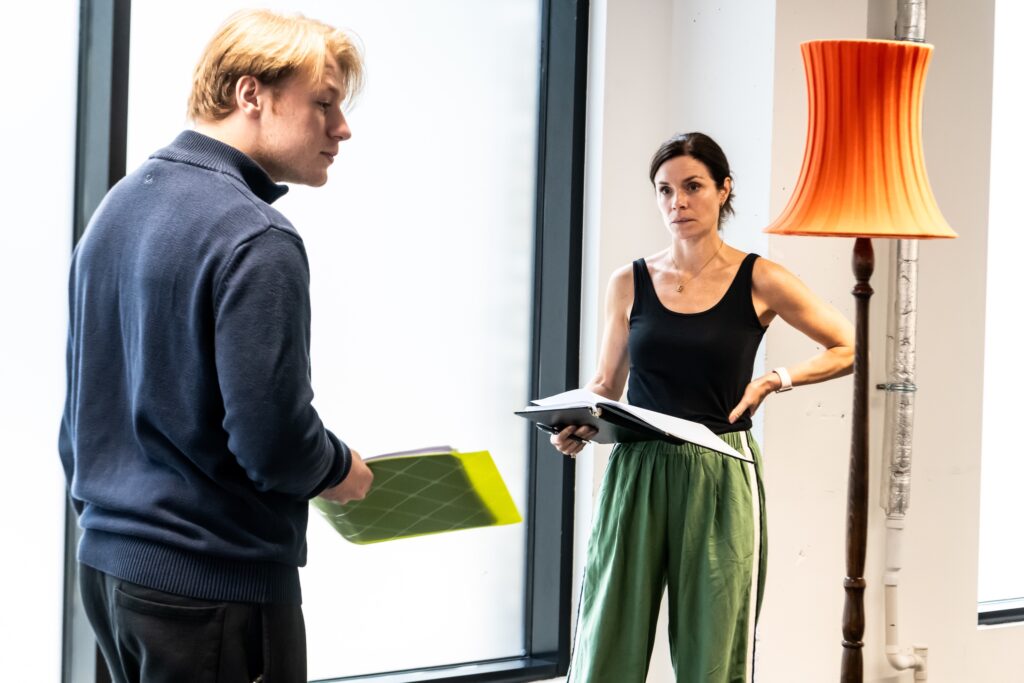
GW: It’s wonderful. Freddie graduated from Mountview this year, and he auditioned independently for the role. To be part of his professional debut is a gift. Of course it’s a bit odd for him, seeing his dad in rehearsals, but I think he now appreciates why I often came home tired at the end of the day! Acting together is a privilege.
You’ve been in the business for nearly 40 years, Gary. Did you give Freddie any advice about becoming an actor?
GW: Honestly, no. Who am I to tell him not to try? The highs far outweigh the lows in this profession, and I’ve always told my kids: go for it, make your own choices, see where life takes you. Better to try and maybe fail than to look back and wish you’d done it.
Anna, you and Gary have a connection from Family Affairs. How has it been reuniting?
AA: It’s been lovely. We didn’t always have storylines together, but the cast was very close, and we knew each other socially. Working together again, in a completely different context, has been a joy. And of course Sarah also worked on Family Affairs, so there’s a real sense of coming full circle.
Sarah, what has it been like seeing this cast bring your words to life?
SS: Honestly, it’s overwhelming at times. Just the other day I found myself getting emotional watching a scene, thinking: how lucky am I to have these actors? They bring so much more than I could have imagined. It’s what theatre is about: collaboration. And I hope audiences feel that energy.
What do you hope audiences take away from Blessings?
AA: I hope they’re moved. That they see something of their own families reflected back at them, whether they grew up Catholic or not. Families are universal.
GW: I hope they laugh as well. It’s darkly funny in places, and laughter is as important as the tears.
SS: Above all, I want them to feel that nothing really changes. The struggles of 1969 are still with us. Family life is messy, beautiful, painful, and enduring. That’s what Blessings is about.
Finally, how does it feel to be presenting this at Riverside Studios?
GW: Riverside has been an iconic place for me. I wrote to them 40 years ago, did a reading here 35 years ago, and to finally be back here, with this play, is special.
SS: Riverside has been instrumental in making this happen. They’ve always nurtured new writing and new voices. We couldn’t ask for a better home for the premiere.
Thanks very much to the team for talking to us about this brand new production. Blessings runs at Riverside Studios from Tuesday 30 September until Sunday 26 October.



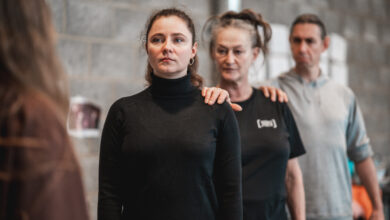
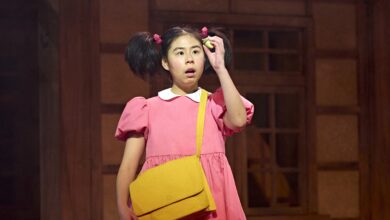

One Comment